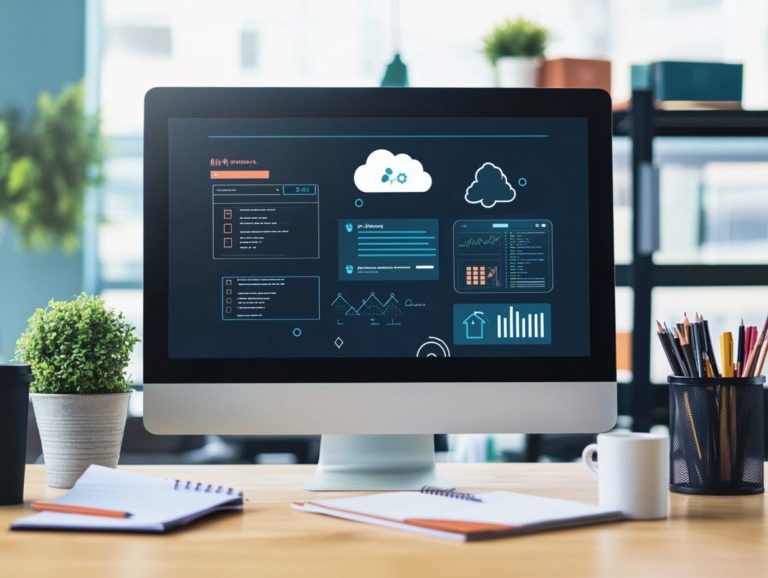Best Practices for CRM Security and Compliance
In today s digital landscape, safeguarding customer data has become an imperative task for any business. CRM security and compliance protect sensitive information and ensure adherence to legal standards, mitigating potential risks.
This article delves into the significance of CRM security, emphasizing its benefits and the legal requirements it addresses. You ll discover key components such as data protection measures, user access management, and compliance audits that form the backbone of an effective Customer Relationship Management (CRM) system.
Best practices empower your organization to maintain security and compliance within your CRM framework.
Contents
Key Takeaways:
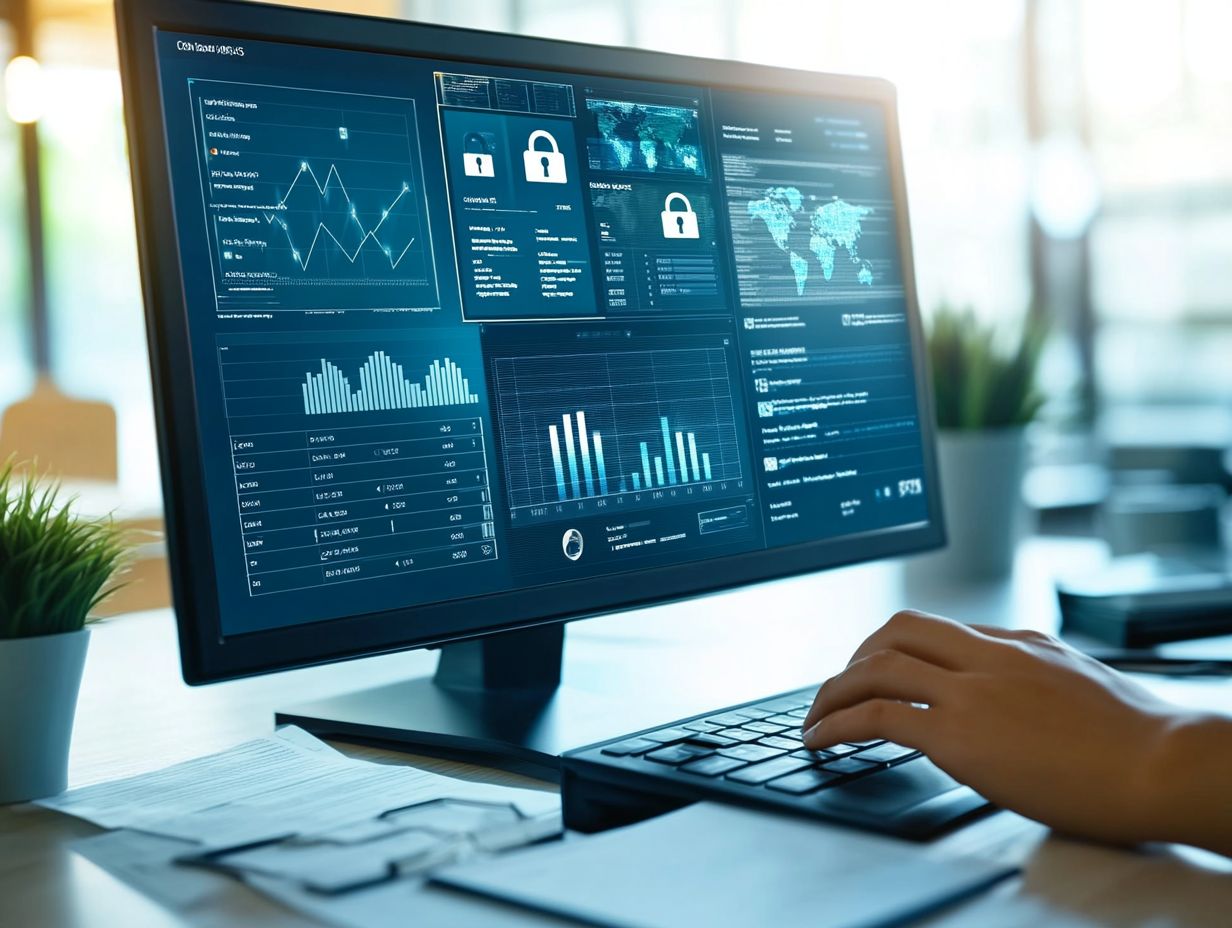
Act now to protect your customer data and meet legal obligations with strong security measures. Ensure compliance through regular training and education for employees. Additionally, follow the best practices for CRM software configuration to continuously monitor and update your system, maintaining security and compliance standards.
What is CRM Security and Compliance?
CRM security and compliance encompass sophisticated practices and technologies designed to protect customer data within Customer Relationship Management (CRM) systems while adhering to regulatory guidelines.
To achieve effective CRM security, implement strong data protection measures and ensure compliance with regulations like GDPR and HIPAA. It’s also important to follow CRM software best practices to protect sensitive information from unauthorized access and potential data breaches.
Organizations must act now to refine their security protocols to combat internal and external threats that could jeopardize customer data and violate compliance requirements.
Why is CRM Security and Compliance Important?
CRM security and compliance are crucial. They not only protect sensitive information but also shield your organization from hefty fines associated with compliance failures, such as those outlined in understanding GDPR compliance in CRM.
As regulatory scrutiny intensifies and data breaches escalate, prioritizing data security is essential. By doing so, you uphold trust and integrity in customer interactions while ensuring adherence to critical regulations like GDPR and HIPAA.
Business Benefits and Legal Requirements
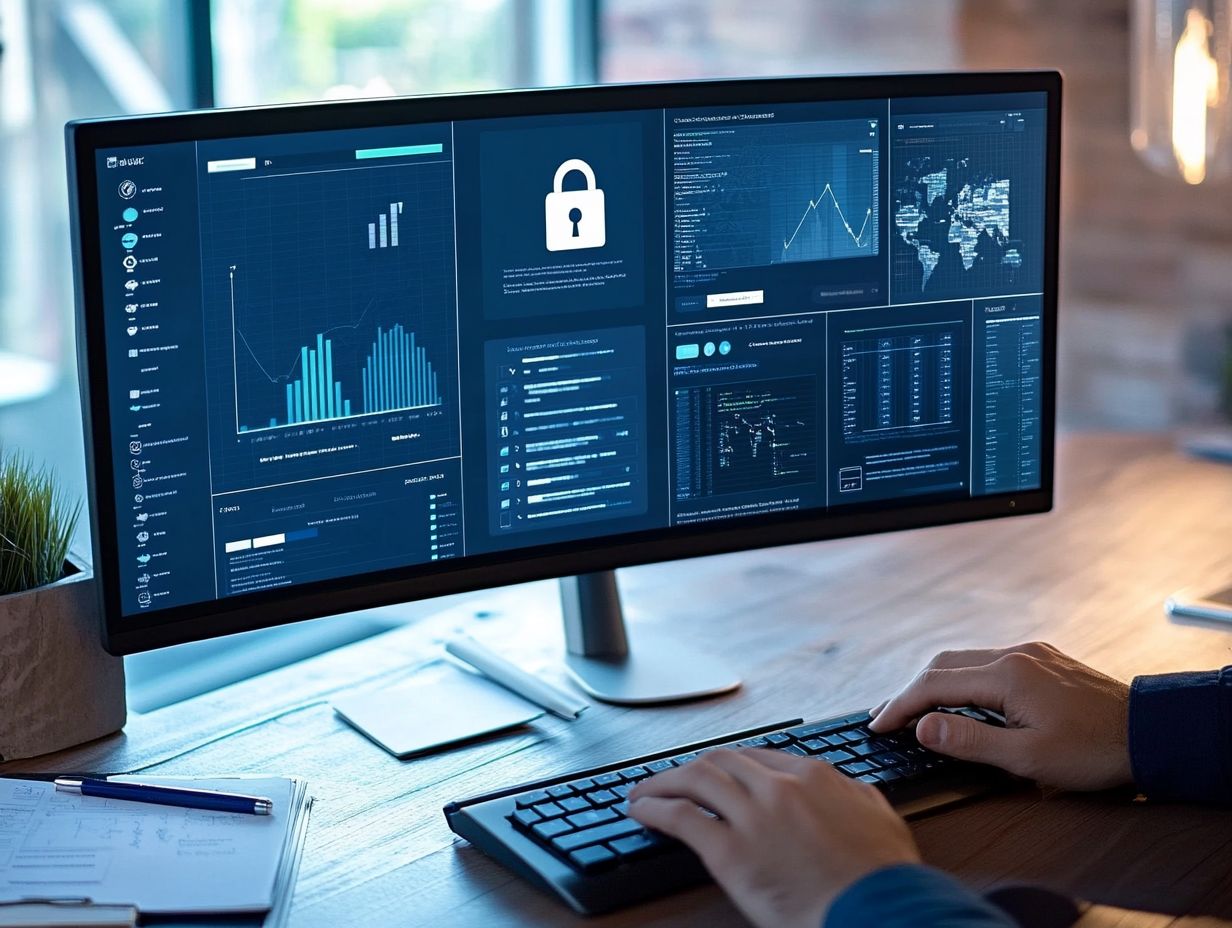
Understanding business benefits and legal requirements is essential for organizations utilizing CRM solutions to manage customer interactions. This awareness helps avoid costly financial penalties.
Being vigilant about data protection nurtures enhanced customer loyalty. Clients feel more secure when they know their data is handled with care. Implementing effective data privacy measures elevates trust, leading to deeper engagement.
Additionally, aligning CRM practices with compliance frameworks like GDPR and HIPAA boosts operational efficiency. Adhering to these guidelines streamlines processes and sidesteps potential disruptions, paving the way for stronger customer relationships and improved business outcomes.
Key Components of CRM Security and Compliance
Key components of CRM security and compliance include strong data protection measures, meticulous user access management, and regular security audits, as outlined in best practices for using CRM software.
These practices are vital for maintaining adherence to compliance standards, ensuring that your organization remains secure and trustworthy in an ever-evolving landscape.
Start implementing these CRM security practices today to secure your customer data and enhance your business!
Data Protection Measures
Data protection measures are essential for safeguarding your sensitive information against unauthorized access and potential breaches. Employing techniques like encryption and strong security rules is very important.
Among these techniques, the Advanced Encryption Standard (AES) is a standout choice, widely adopted to ensure that your data remains unreadable without the correct decryption key. You should also implement strict access controls to limit data exposure strictly to authorized personnel. This significantly reduces the risk of insider threats.
Consider the notorious 2017 Equifax breach, where hackers exploited weak access controls to steal personal information from around 147 million Americans. These incidents show why you must take security measures seriously now!
Combine effective encryption with strong access management to protect your sensitive data.
User Access Management
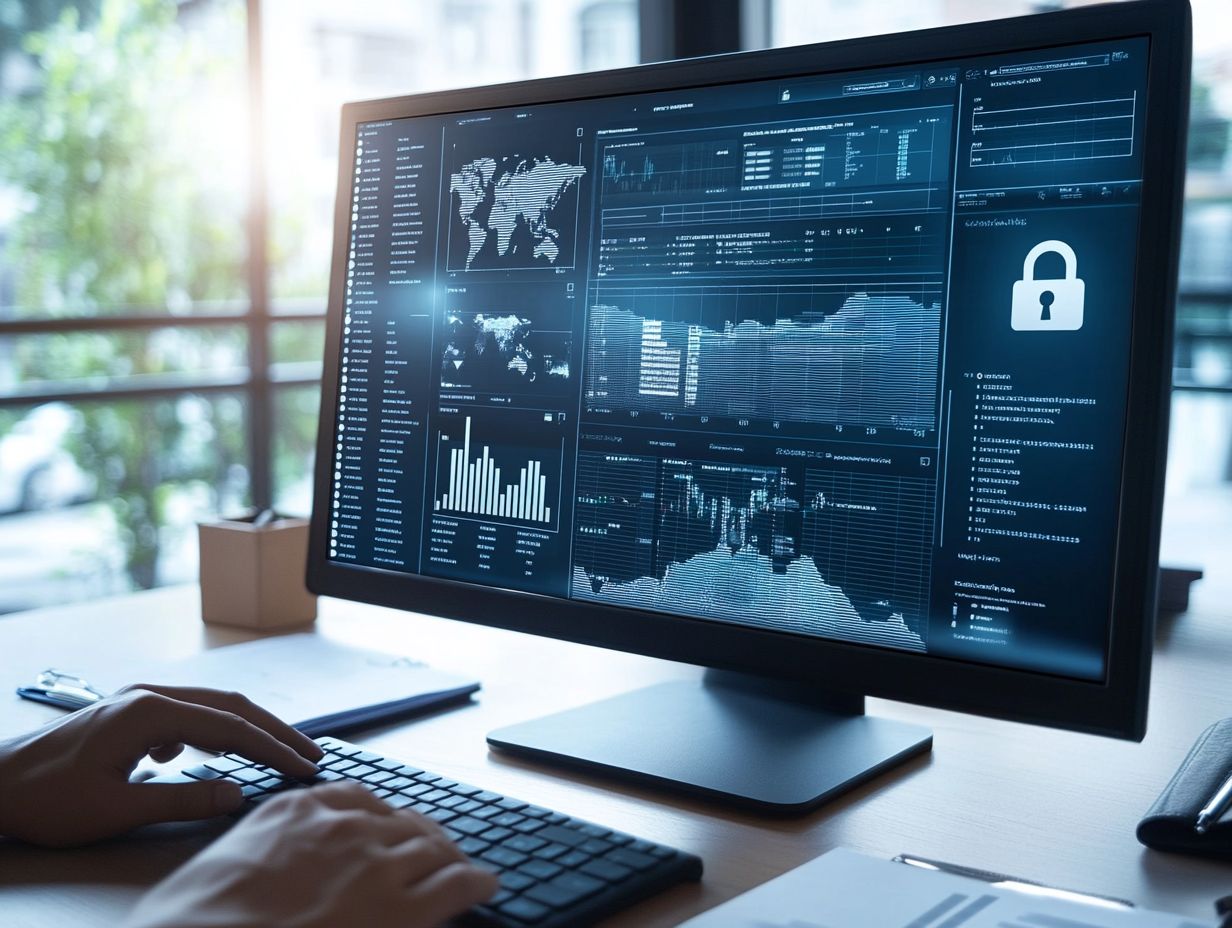
User access management means setting up strict access controls and two-factor authentication to mitigate internal threats and prevent unauthorized access to sensitive customer data.
Effectively managing permissions within your Customer Relationship Management (CRM) system is essential for protecting valuable information. This means granting access strictly based on user roles. Ensure that only authorized personnel can view or modify sensitive data.
Integrating two-factor authentication adds an invaluable layer of security. This adds a step to verify identity, making it harder for unauthorized users to access accounts, significantly reducing the chances of breaches even if login credentials fall into the wrong hands.
By establishing clear protocols and conducting regular audits, you can proactively identify and address vulnerabilities. Ultimately, this fosters a culture of security awareness that minimizes risks associated with internal threats.
Compliance Audits
Compliance audits play a crucial role in identifying security weaknesses and ensuring you meet regulatory requirements. This allows your organization to navigate compliance issues with confidence.
These audits act as a systematic evaluation of your systems, policies, and procedures, helping you pinpoint areas that need attention. By implementing these audits, you gain valuable insights into existing risks that could threaten your security.
The importance of audit trails cannot be overstated; they provide a historical record of activities, simplifying the process of tracking changes and responses to incidents.
Ultimately, conducting thorough compliance and security audits not only enhances your overall security posture but also builds trust with stakeholders, showcasing your commitment to protecting sensitive information.
Best Practices for Ensuring CRM Security and Compliance
Implementing best practices in CRM data management for security and compliance is paramount for safeguarding your customer data. This involves establishing strong security rules, providing thorough employee training, and ensuring continuous monitoring of your systems.
By prioritizing these measures, you not only protect sensitive information but also build trust and credibility with your customers.
Implementing Strong Security Protocols
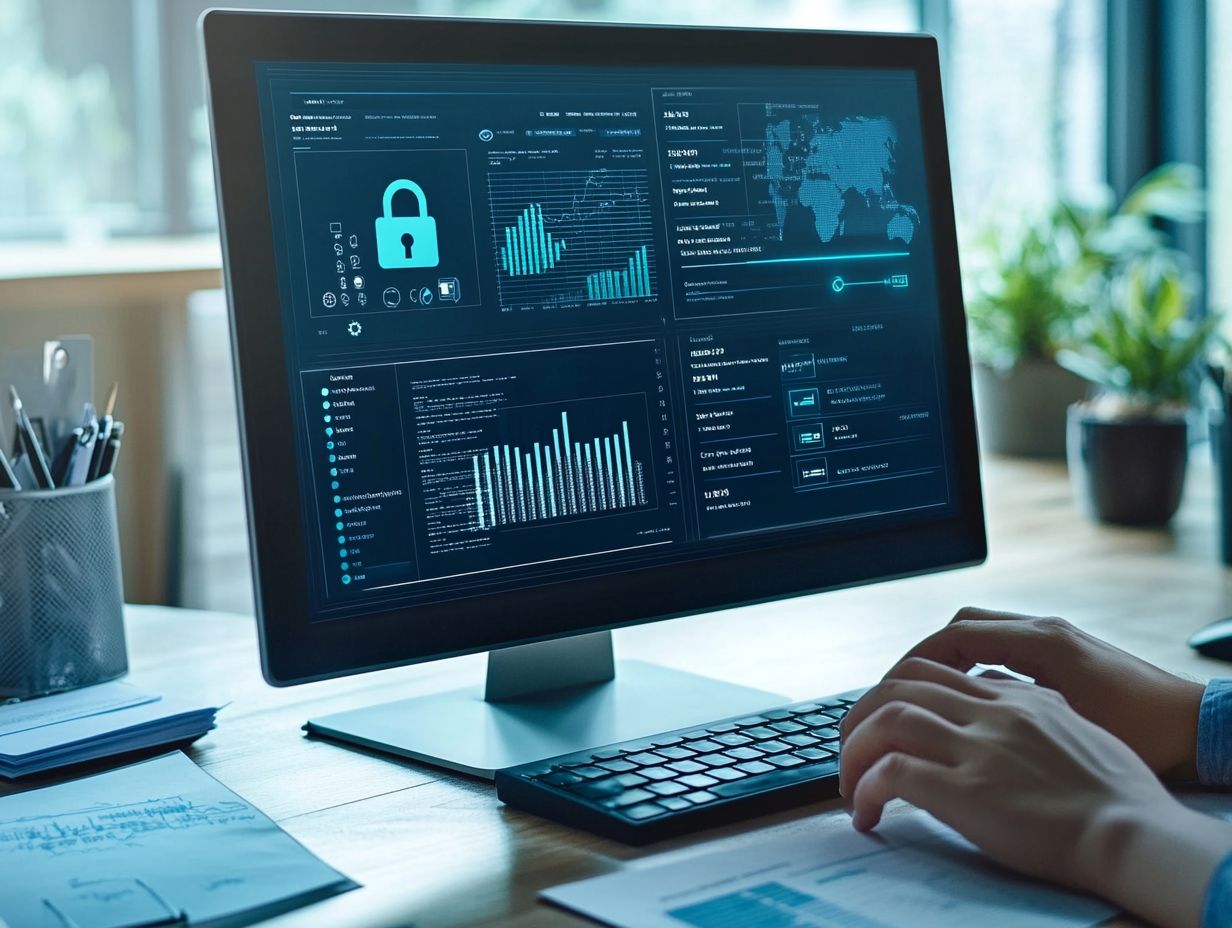
Implementing strong security protocols, such as robust password protection and comprehensive data protection measures, is essential for meeting compliance standards and securing customer information.
By adopting a well-rounded approach that includes effective password management strategies, you can significantly reduce the risk of unauthorized access. This means regularly updating passwords, enforcing complex combinations, and utilizing password managers for secure storage.
Employing advanced encryption methods to safeguard sensitive data in transit and at rest is absolutely crucial. You should also develop clear policies that outline best practices for data handling and user access, ensuring everyone within your organization adheres to these standards.
Together, these measures not only bolster security but also ensure compliance with industry regulations, ultimately fostering customer trust and protecting valuable information.
Regular Training and Education
Regular training and education for employees are essential for building a culture of security awareness and understanding of cyber threats. This ensures adherence to necessary rules and regulations.
As the landscape of cyber threats evolves, equip your team with essential knowledge and skills to identify and effectively mitigate these risks.
Through comprehensive training programs, your employees will learn to recognize various potential cyber threats and grasp the critical importance of following established compliance protocols.
This ongoing education fosters a proactive mindset. Encourage individuals to stay vigilant and report any suspicious activities, ultimately leading to a significant reduction in security incidents.
By prioritizing the continuous development of your workforce, you can enhance your organization s overall security posture and cultivate a safer work environment.
Continuous Monitoring and Updates
Continuous monitoring of your systems, along with routine software updates and vulnerability assessments, is essential for maintaining CRM security and compliance, as outlined in the CRM best practices for sales team success.
This proactive approach allows you to swiftly detect unusual activity, ensuring that potential risks are addressed before they escalate.
By integrating robust logging mechanisms, you can effectively track user behavior and system performance, helping you recognize patterns that may signal emerging threats.
These continuous monitoring systems safeguard your sensitive data and enable timely software updates, ensuring your systems remain resilient against evolving vulnerabilities and meet regulatory standards.
In this dynamic landscape, maintaining such vigilance is critical for fostering trust with your clients and stakeholders alike.
Summary of Key Points
CRM security and compliance are essential for safeguarding customer data through effective protection measures and adherence to best practices for CRM technical support. Recognize the constantly evolving landscape of threats and the importance of securing sensitive information.
Data breaches and compliance violations can lead to severe financial penalties and significant loss of customer trust. Implement robust security protocols now!
Emphasizing continuous training for your staff, utilizing encryption methods, and conducting regular audits can greatly enhance your data protection efforts.
By staying informed about regulatory requirements and industry standards, you bolster your security posture and cultivate a culture of accountability that prioritizes customer confidentiality.
Frequently Asked Questions
What are the main areas of focus for best practices in CRM security and compliance?
The main areas of focus include:
- Data protection
- Access control
- User authentication
- Compliance with regulations and laws
- Regular audits and updates
How can I ensure data protection in my CRM system?
To ensure data protection, consider the following:
- Regularly back up your CRM data
- Implement encryption for sensitive data
- Limit access by using strong user authentication and access control measures
What are some common compliance regulations that apply to CRM systems?
Common compliance regulations include:
- General Data Protection Regulation (GDPR)
- California Consumer Privacy Act (CCPA)
- Health Insurance Portability and Accountability Act (HIPAA)
What steps can I take to ensure compliance with regulations?
To ensure compliance, you should:
- Regularly review and update your CRM system’s policies and procedures
- Obtain explicit consent from customers for data collection
- Keep accurate records of data usage and storage
How can I stay up-to-date with best practices for CRM security and compliance?
You can stay informed by:
- Regularly attending training and educational workshops
- Staying updated on changes in regulations
- Partnering with a reputable CRM security and compliance provider
What should I do if my CRM system experiences a security breach?
In the event of a security breach, it is important to:
- Identify and address the cause of the breach
- Notify affected parties
- Implement measures to prevent future breaches
Take action now to secure your CRM system!





